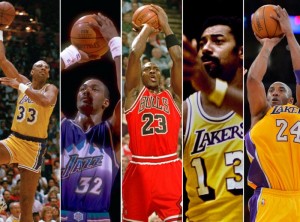 A couple weekends ago I was at a beach party in the Philippines. The crowd comprised locals from the Cebu City region but my friends knew a couple of Americans there they wanted to see. As we joined this group exchanged pleasantries, I met an NBA recruiter named Greg*. Greg works for one of the great NBA teams–one with multiple championships–and travels the world to find the next NBA superstar.
A couple weekends ago I was at a beach party in the Philippines. The crowd comprised locals from the Cebu City region but my friends knew a couple of Americans there they wanted to see. As we joined this group exchanged pleasantries, I met an NBA recruiter named Greg*. Greg works for one of the great NBA teams–one with multiple championships–and travels the world to find the next NBA superstar.
Greg regaled us with the stories behind the the greatest players (and coaches!) in the league. After listening for a few minutes, I asked a question whose answer may change my life. Or at least profoundly summarize my plan for personal development. I asked Greg, “What is the single best quality in a recruit that predicts his success in the NBA?” Greg answered simply and quickly.
Greg replied, “self-awareness”. He went on to explain that every NBA player has many times in their life been the best player on the court. They ruled the school yard when they were young. They crushed their friends in the park games on the weekends. They set high school records and maybe were the best player their college ever had. After a lifetime of unmitigated dominance it would be easy to imagine the weight of the ego they might carry.
Yet some players, despite years of hearing their friends’ and family’s adulation, know there is more to learn. They are able to recognizes the gifts others possess. They know their own strengths relative to the best of the best. And they also recognize their weaknesses, which they will either mitigate or work to address. This recognition is so important because it means their development will continue when in the NBA. And without continued improvement no one can become the next Kobe or LeBron.
Greg’s observation and the the storm of thoughts it fomented made me think about the years as a manager I was required to create annual performance reviews. Delivering these reviews was never fun. I spent a lot of time trying to gently and honestly craft some constructive criticism. I can think of many times the criticism was ill received. In those cases my subordinate energetically disputed my observations. This is fine, because certainly it is possible for a manager’s observations to be wrong. But these cases the reviewed employee would admit to no areas in which improvement was needed in the following year. They lacked self-awareness.
Greg’s comment about self-awareness stands sentinel in my mind watching over my continued development and march towards wisdom. It is a reminder that my best development will be borne from time with those more skillful and more wise than I. It will come from insights about their strengths as well as my own weaknesses. I need not always fix those weaknesses but their existence must be recognized as I craft my future self.
Notes
Greg is not his real name. I’m witholding his name and his team’s because I lack their permission to use them. I don’t want NBA-sized lawyers sending me nasty letters.
